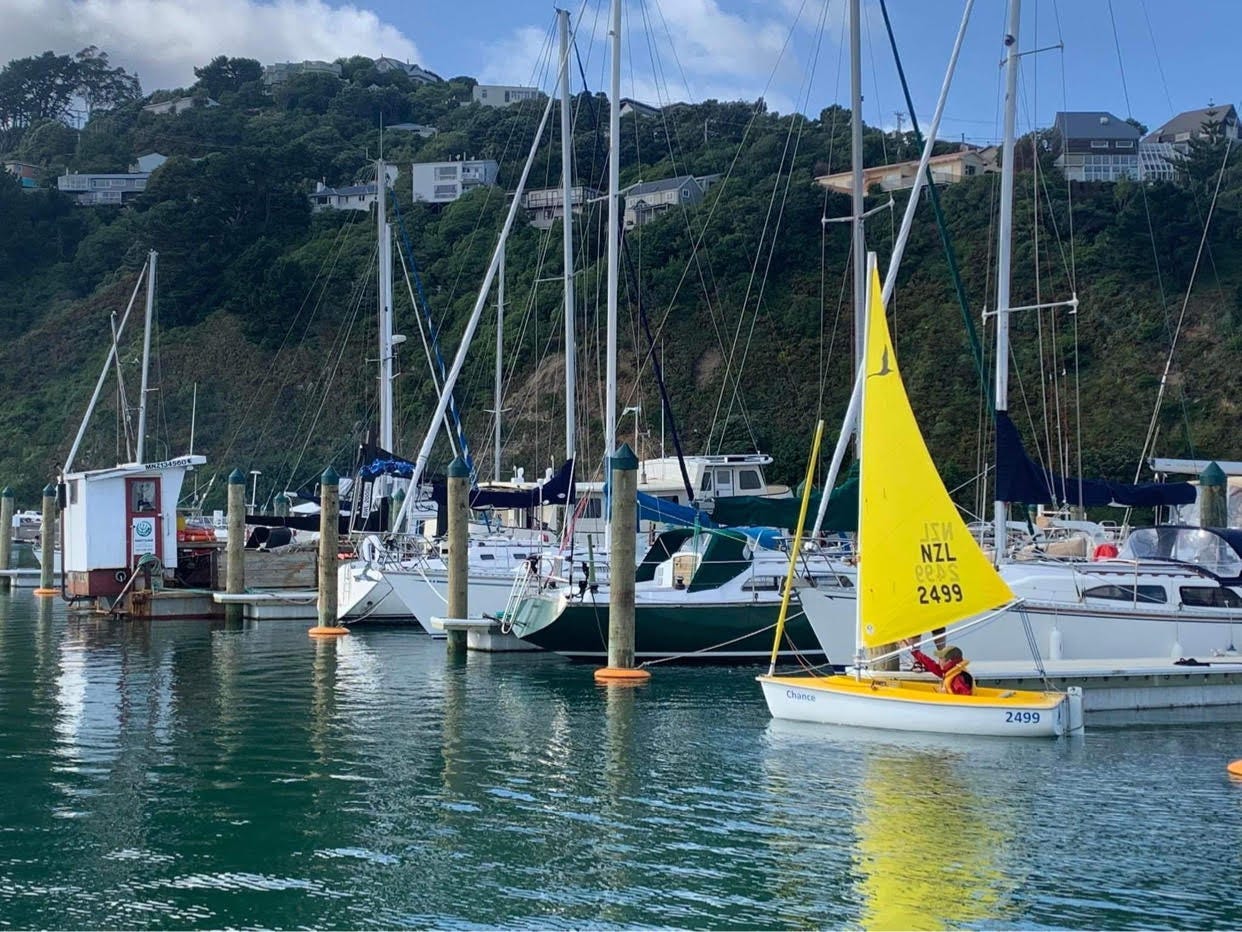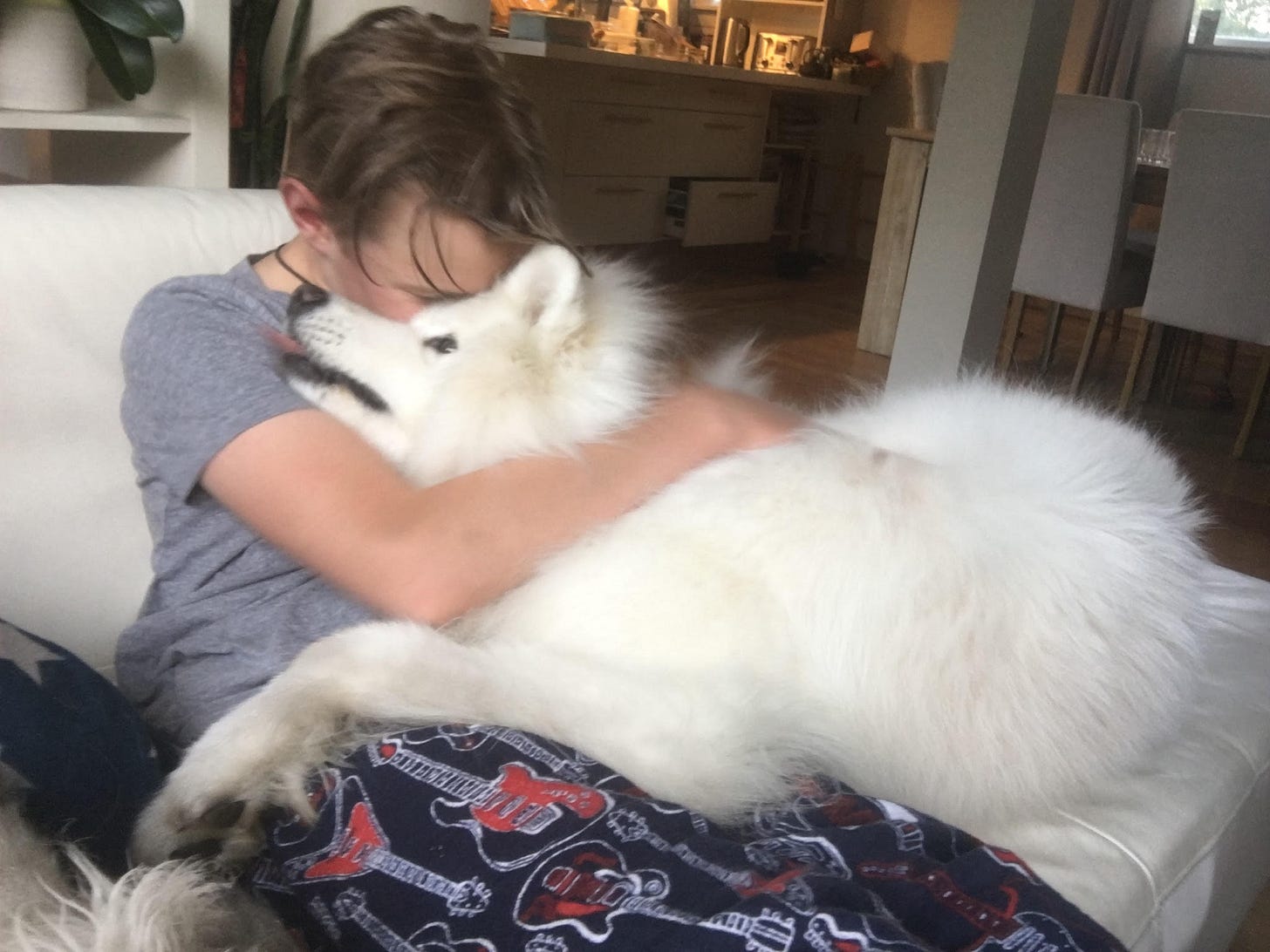Welcome to the Awhi newsletter! Today, we have a great post from a neurodivergent teen. Mum Tiana interviewed her son Lucas. Wherever possible we want to share the voices of our children - so that we can better advocate for them and support them. If you’d like to interview your child and help them to share their story, let us know. Just reply to this email. Arohanui, Awhi.
When I publicly share my experiences about parenting a neurodivergent child, I aways check with my son that he is OK with what I’m sharing – as they are his experiences too. As he has grown older and has developed more of an awareness about himself and his place in the world, he has expressed interest in sharing his experiences more directly - so that others might benefit from what he has been through. As he often struggles sequencing and processing his thoughts, he asked that I help him navigate his ideas through asking him questions that I think others might benefit from.
Would you like to introduce yourself and talk about what makes you unique?
Sure, I’d love to. My name is Lucas. I just turned 14. I like archery, sailing, mountain biking, walking my dogs, playing video games and playing chess. I’m also neurodivergent.
At first I was diagnosed with dyspraxia. Dyspraxia means that I have a reasonably high pain threshold sometimes, and sometimes I really don’t. It also means I have hypermobility which means my joints are reasonably floppy and I injure myself often (like roll my ankles). I end up in A&E a lot because of my numerous accidents, like breaking my toe from banging into something or breaking my arm from landing weird. One of the acronyms I’ve learned is ‘F.O.O.S.H’: Fall On Outstretched Hand. I do that a lot because I’m quite clumsy.
Having dyspraxia means that it takes me a while to learn physical activities – like swimming, riding a bike, and ball skills – but once it’s in my muscle memory I’ve got it down for life. It also means I get tired a lot easier as I have to work to hold my body upright and keep it stable. Things like sitting at a desk, gripping a pen and writing really tire me out and make my muscles sore.
I also have Inattentive ADHD. This is different from the better-known kind. It just means I can be a bit more zoned out, have a short attention span and struggle staying on task. Unless I’m interested in something, then I am LASER focused and pretty much have a photographic memory. My teachers often think I’m mucking around instead of doing my work, but I actually need more support to help me to engage and complete tasks.
What things do you think you struggle with the most being neurodivergent?
Social interactions are definitely my weak point. I don’t really know how to chat with people or make small talk. Pretty much, my whole social mindset is not there yet. I find it hard because there are all these unwritten social rules about what to do and say and not do and say and I find it really hard to abide by those rules. I’m really bad a reading the room and often talk about things that other people aren’t interested in or might be offended by. For example, I talk about video games pretty obsessively sometimes. When I’m on a roll talking about something, I find it hard to listen to what others are saying. This makes it nearly impossible to make friends. I get bullied too. Sometimes I feel like an outcast.
I struggle with people that don’t understand what it’s like being neurodivergent and don’t even think anything like that exists. People think I’m choosing to muck around and not do classwork, or choosing to act impulsively or say the wrong thing in the wrong place at the wrong time. But these things are part of my disability and having a disability isn’t a choice.
What are some things that really help you and the challenges you face?
Understanding, tolerance, and support. I’m in my first year of high school. I had to switch classes because of bullies. It was really tough, but my school counsellor supported me through it. She is helping me learn social cues and make some friends. Some of my teachers try to support me too. They advocate for me if I get bullied. My parents are really helpful and give me heaps of support. They go to numerous parent teacher meetings and advocate for me with my teachers and the principal.
What specific things really help you if you’re having a tough day or are feeling overwhelmed?
It depends on the situation. Like, if I got bullied at school, I would probably spend a lot of time with my dogs or my cat. In one of my sister’s numerous cat books it says that stroking a cat relieves stress and anxiety. Mostly though, I go to my dogs for comfort and reassurance. They are my best buddies.
If we’re out an about and I’m feeling overwhelmed I usually put on my noise cancelling headphones and cap. I really love my headphones and cap. Playing video games helps too. It helps by taking my mind off what’s going on in the outside world.
I try and slow down my breaths to stop my heart beating so fast. My mum always tells me to do these breathing sequences because she’s a yoga teacher. She tells me to: “Breath in like you’re sniffing a rose. Breath out like you’re blowing out a candle.” It kind of helps.
In general, I need to make sure I get at least 10 hours of sleep per night and don’t eat too much sugar or I can’t control myself as well. If I don’t eat frequently enough, I can’t really control my body that well either.
Life feels better when I focus on things I’m interested in and good at. I go to Sailability – where I race sail dingys with other disabled/ neurodiverse people. They are a really nice crew. I’m going to the Nationals in December! I really love going mountain biking with my dad. We have really good chats while we go mountain biking.

Do you have any advice to give to other parents of neurodivergent kids?
Just listen to them. Give them all the support they need, and more. That’s pretty much it.




